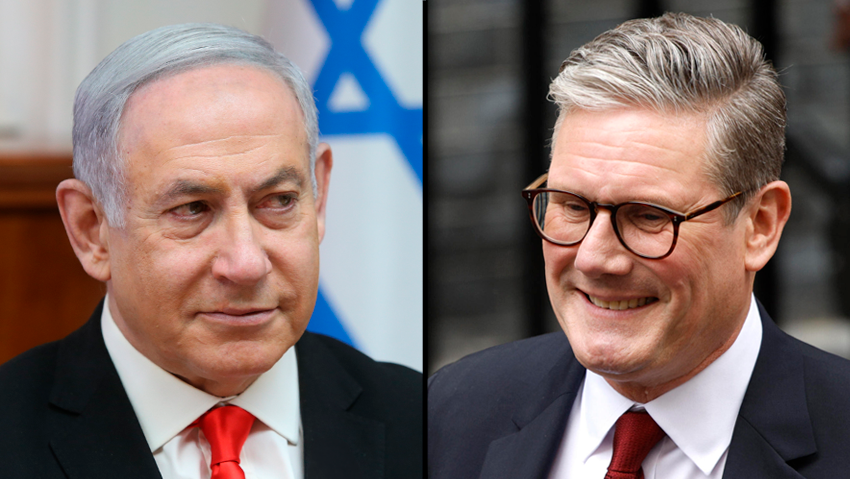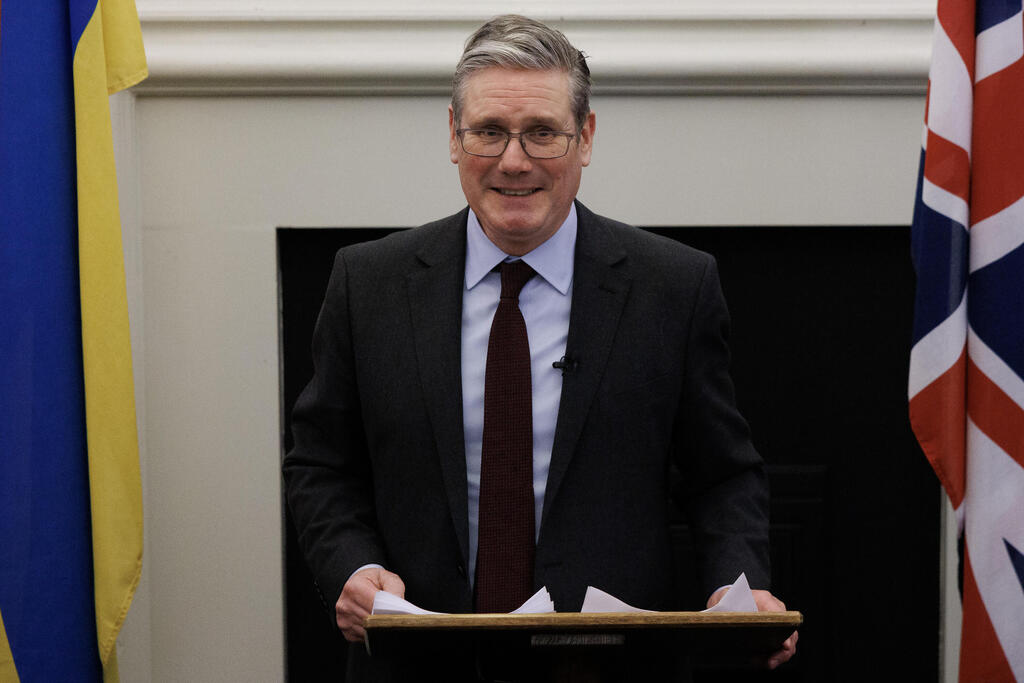Getting your Trinity Audio player ready...
In a move that drew sharp criticism, the British government announced the suspension of 30 arms licenses to Israel, a decision that came on the heels of a brutal act by Hamas, which executed six Israeli hostages. Israeli Prime Minister Benjamin Netanyahu took to his English-language account on the social media platform X to voice his disapproval.
"This disgraceful decision will not change Israel's determination to defeat Hamas, a terrorist organization that brutally murdered 1,200 people on October 7, including 14 British citizens," Netanyahu said in the post.
"Hamas still holds more than 100 hostages, including 5 British citizens. Instead of standing with Israel, a democracy defending itself from barbarism, the UK's misguided decision will only encourage Hamas. Israel is conducting a just war using moral means, taking unprecedented steps to avoid harming civilians and fully operating according to international law," Netanyahu also said in the post.
His remarks invoked a historical parallel. "Just as Britain's heroic stance against the Nazis is seen today as essential in protecting our shared culture, history will similarly judge Israel's stand against Hamas and Iran's terror axis. With or without British arms, Israel will win this war and secure our shared future," according to the prime minister.
In contrast, UK's Defense Secretary John Healy minimized the impact of the suspension. "The suspension of licenses will have no real impact on Israel's security," he said. Healy affirmed Britain's unwavering support, adding: "We remain fully committed to our commitment to defend Israel."
The announcement of the suspension of the arms licenses came from British Foreign Secretary David Lammy, who clarified that London would halt around 30 out of the approximately 350 arms export licenses to Israel. He emphasized that this move did not amount to an arms embargo. The Labor government under Keir Starmer decided on this course of action following discussions held by the UK's new chief prosecutor in Israel. The suspension appeared to target mainly offensive weapons rather than defensive ones.
This unusual step, which Israel had been dreading and succeeded in delaying slightly, follows another controversial action that has irked Israel – the withdrawal of its objection to a request by Karim Khan, the chief prosecutor at the International Criminal Court in The Hague, to issue arrest warrants against Netanyahu and Defense Minister Yoav Gallant.




